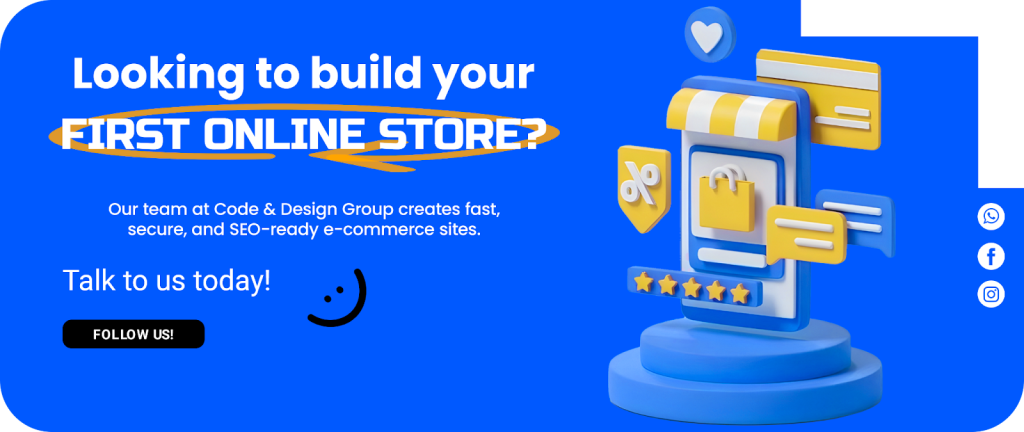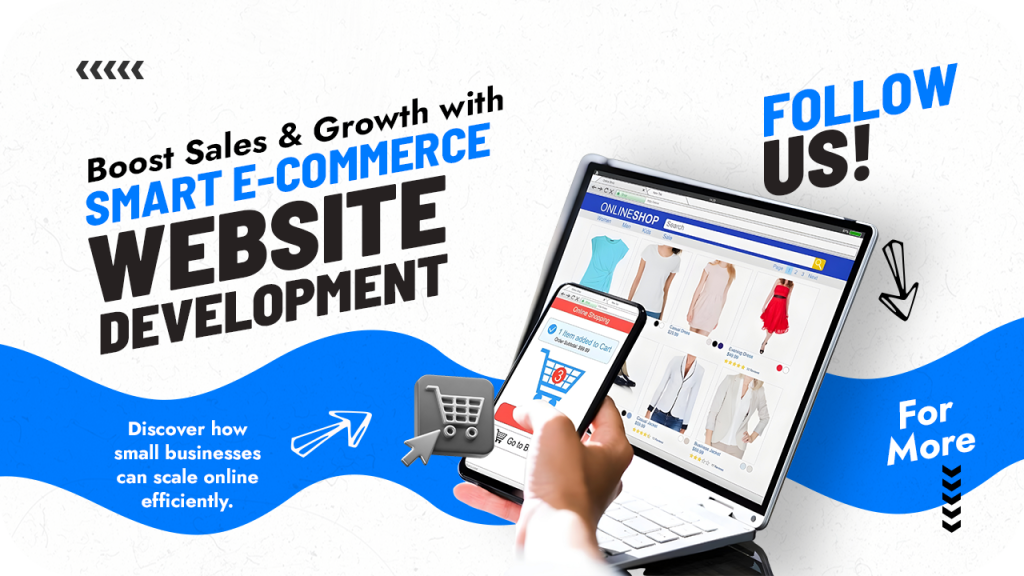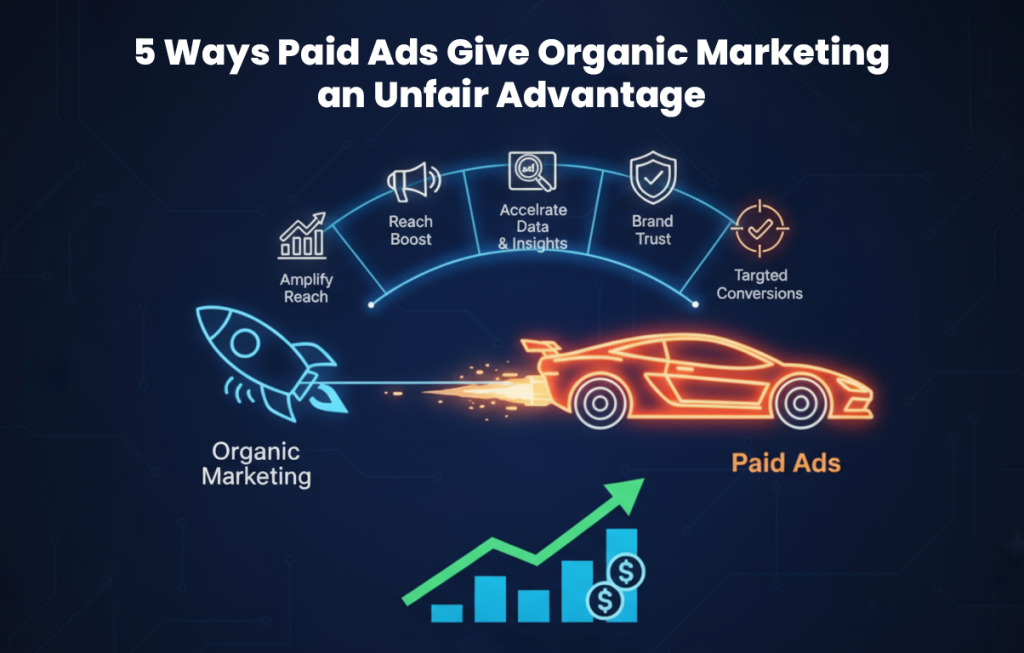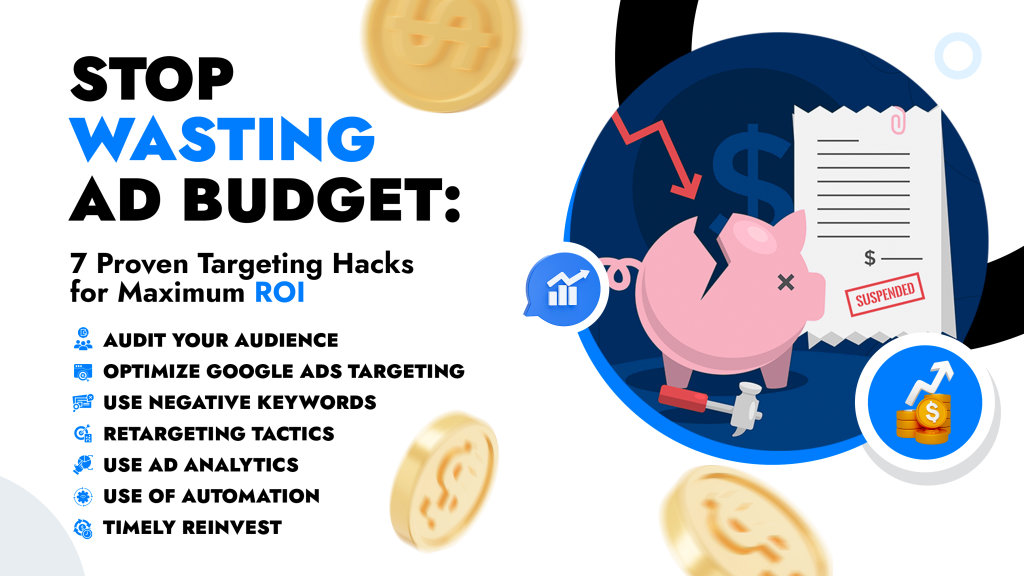For small businesses in the USA, especially those in Houston and across Texas, competing with big brands often feels impossible. Yet, the rise of custom e-commerce website development has improved the playing field.
Instead of relying solely on physical stores or third-party marketplaces like Amazon, small businesses are now investing in the best e-commerce web development company in Houston that gives them full control over their sales, branding & visuals, and customer relationships.
But why is custom online store creation such a game-changer? Let’s explore the 7 key benefits that directly impact small businesses.
7 Key Benefits of E-Commerce Website Development
Uncover how a professional e-commerce website design empowers small businesses with control, profitability, customer insights, and long-term growth.
1. Full Control Over Branding
When selling through Amazon, Etsy, or eBay, your products are surrounded by competitors. Customers often remember the platform, not your brand.
Advantages of an e-commerce website for a small business:
- Your logo, colors, and brand story are front and center.
- You design the customer journey (instead of following a marketplace template).
- You own the first impression—and that builds long-term trust.
Find out why businesses are moving away from templates to custom web solutions.
2. Higher Profit Margins
Marketplaces charge listing fees, transaction fees, and commissions. For smaller businesses with narrow profit margins, these costs significantly reduce earnings.
That’s where the importance of e-commerce in business comes in.
Boost online sales with top web development services designed for small businesses.
A dedicated, user-friendly e-commerce solutions site allows you to:
- Avoid excessive marketplace fees.
- Use direct payment gateways with lower transaction costs.
- Offer promotions, bundles, and subscriptions without restrictions.
According to the Statista report, the U.S. web development market is projected to surpass $65 billion by 2030, driven by demand for custom, scalable, and secure web solutions, indicating a shift away from rigid templates.
3. Better Customer Data & Insights
Your online store development for a small business means owning your data. Marketplaces rarely share detailed analytics.
When you build your online store, you get:
- Customer demographics (age, location, interests).
- Purchase behavior (repeat buys, abandoned carts).
- Traffic insights (which channels drive sales).
These insights help entrepreneurs and small business owners in Houston create more effective marketing campaigns and retain loyal customers.
If you’re planning a new website, explore the step-by-step guide to web development success.
4. 24/7 Availability Without Extra Staff
Unlike physical stores, your website is always open. Customers can reach online stores from anywhere. Increase sales with e-commerce, particularly in regions that span multiple time zones, such as the USA. A small business in Texas can sell to night owls in California without hiring overnight staff.
5. Scalability of e-commerce websites For Growth
Why small businesses need an e-commerce website.
because they often start small, selling 5 to 10 products. But what happens when demand doubles?
A web shop scales easily when:
- Add unlimited product listings.
- Introduce new categories.
- Integrate subscription services or loyalty programs.
Unlike marketplaces that limit your growth, your site grows along with you.
6. Stronger Customer Relationship
Repeat business fuels growth. Marketplaces keep customer emails and loyalty for themselves, limiting your ability to remarket.
With your own business website, you can:
- Collect customer emails for email marketing campaigns.
- Use loyalty points or referral programs.
- Provide personalized recommendations (AI/ML tools).
This builds customer retention—often cheaper than finding new buyers.
Automate workflows and enhance user engagement through our web app solutions.
7. Competitive Advantage in Local SEO
For U.S.-based small businesses, local SEO can be a powerful tool when optimized correctly, and your store shows up for searches like
- “Organic skincare products in Chicago”
- “Handmade jewelry store near me”
This is not possible with Amazon listings, but your website can rank on Google Maps and local searches.
Before you choose a partner, read our complete guide to top web development services in the USA.
What Makes E-Commerce Better Than Traditional Retail?
Unlike physical stores that depend on location and hours, e-commerce websites let customers shop anytime, anywhere. You can reach buyers across the U.S.—not just those who walk past your storefront in Houston or Texas.
Plus, lower overhead costs, wider reach, and data-driven marketing make e-commerce a far more scalable business model for SMBs.
Marketplace vs. E-commerce Website
| Feature | Third-Party Marketplaces (Amazon/Etsy) | Your E-commerce Website (Shopify, WooCommerce, Custom) |
| Branding Control | Limited | Full control |
| Profit Margins | 70–85% (after fees) | 90–97% |
| Customer Data | Hidden/restricted | Fully accessible |
| Scalability | Limited | Unlimited |
| SEO/Google Ranking | Not possible | Possible |
| Customer Relationships | Belong to the marketplace | Owned by a business |
According to Forbes (2023), over 71% of businesses now have a website, but many still struggle with poor design, slow performance, and outdated templates—proving that custom web development is becoming a necessity, not a luxury.

Which Is Better—WooCommerce or Shopify?
Both platforms are excellent, but they serve different needs:
- Shopify is beginner-friendly and all-in-one (great for startups).
- WooCommerce offers flexibility for WordPress users who want full control.
For many small businesses in Texas, Shopify’s simplicity wins, while growing brands often prefer WooCommerce’s customization.
Real-World Example
A small handmade candle brand in the U.S. started on Etsy, but the fees significantly reduced profits.
After moving to a Shopify store:
- Sales grew 45% in six months.
- Profit margins improved by 18%.
- Email campaigns drove 25% repeat purchases.
This shift gave them long-term independence from marketplace restrictions.

Final Thoughts
For small businesses, marketplaces may be a good starting point, but they’re not the endgame. To scale profitably, build customer trust, and own your digital identity, investing in e-commerce website development in the USA is the smarter move.
It’s not just about selling products—it’s about building a brand that lasts.
To build a scalable online store with advanced features, consider partnering with a professional team.
Code & Design Group empowers small businesses to sell smarter, scale faster, and stay secure.
Gain valuable insights from our in-depth analysis of web development costs and processes.
Frequently Asked Questions
Q1. What is the best e-commerce platform for small businesses in the USA?
Shopify is the easiest to use, WooCommerce is flexible for WordPress users, and BigCommerce is great for scaling. The right choice depends on budget and growth goals.
Q2. How much cost of e-commerce website development cost?
A basic site can cost $1,000–$5,000, while custom stores with advanced features may range from $5,000 to $20,000 or more. Ongoing hosting and maintenance add to the budget.
Q3. Why choose an e-commerce website instead of Amazon or Etsy?
Marketplaces limit branding and charge fees, while your own website gives you control, higher profits, and direct customer relationships for long-term growth.
Q4. How do e-commerce websites help small businesses grow?
They expand visibility, improve customer access, and create 24/7 sales opportunities. Additionally, they enable scalable growth through SEO, marketing tools, and integrations.
Q5. Is it difficult to manage an e-commerce website?
Not really—platforms like Shopify and WooCommerce make it simple to update products, manage orders, and track sales, even for beginners








